Embracing the World
30 September 2020

“Diversification is an established tenet of conservative investment.”
— Benjamin Graham
Familiarity is comforting – especially in investing, which is fraught with uncertainty and risk. We gravitate towards the household names that feel reliable and safe. In Singapore, who hasn’t heard of SingTel, Keppel or Mapletree? Many of these companies also provide decent returns, and so investors don’t feel the need to look elsewhere.
Many people know that stocks go up in the long run. However, what they fail to realise is that only a diversified basket of thousands of stocks have the ability to weather any storms along the way and provide the returns which investors require.
Many investors make the mistake to “buy and hold” a handful of blue chip names with the same assumption. Unfortunately, this does not turn out well as you are overexposed to the increased risks of the handful of companies and the sectors they operate in. Blue chip names such as SIA, SPH and Sembcorp Marine – darlings of investors not too long ago – are languishing far below their peaks. Any long-term investor in these names would definitely be feeling the pain.
Overexposure to a single market is also sub-optimal, and such a home bias can cost us greatly over the long term. By avoiding international exposure, you are excluding a large portion of the global opportunity set. In fact, international stocks represent about 99% of the market outside Singapore!
As you can see, Singapore doesn’t even feature prominently on these charts of the global stock and bond markets.
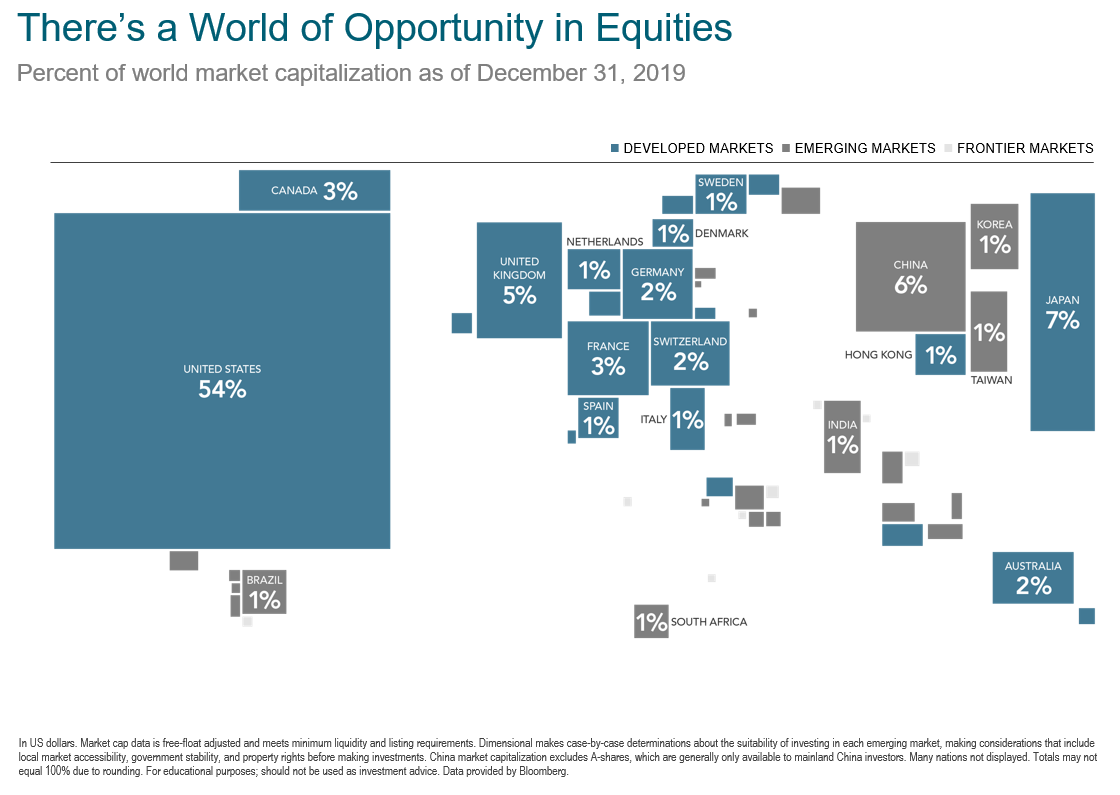
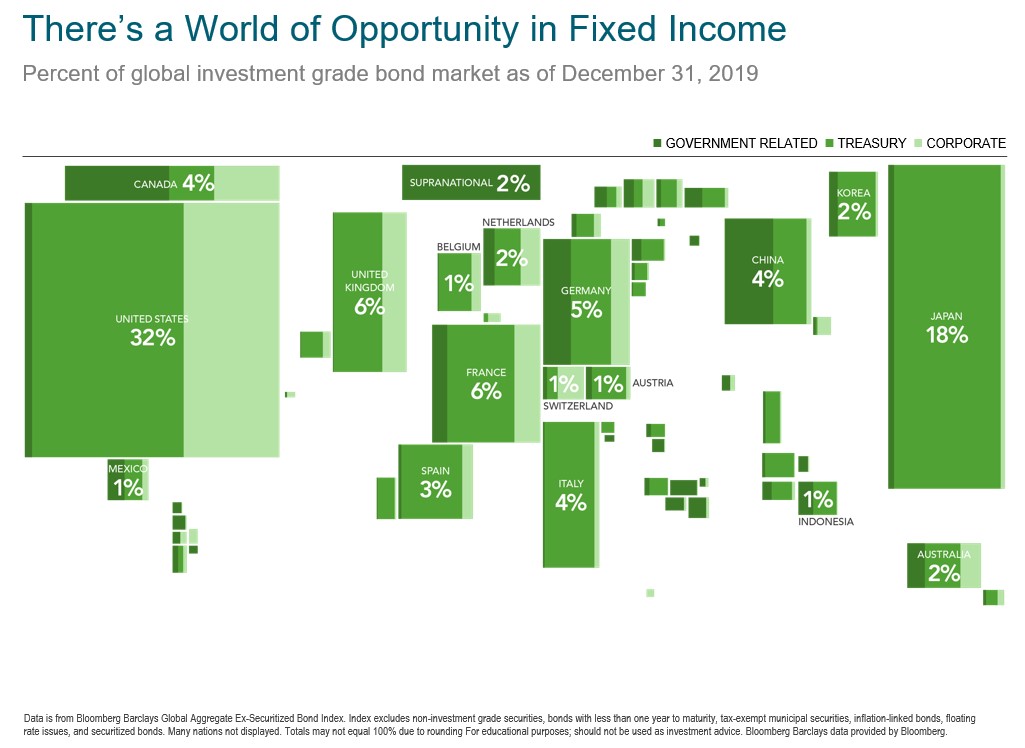
Here are three excellent reasons to get out of your comfort zone and consider allocating to investments outside of Singapore.
1. Better Long-Term Returns
Global stocks have a better long-term return and outlook. You’ll be exposed to the different economies all over the world, rather than just one country. This will also ensure that you can capture the returns of up-and-coming economies as they grow and evolve. The graph below shows how $1 would have grown over time when invested in various asset classes over the years.
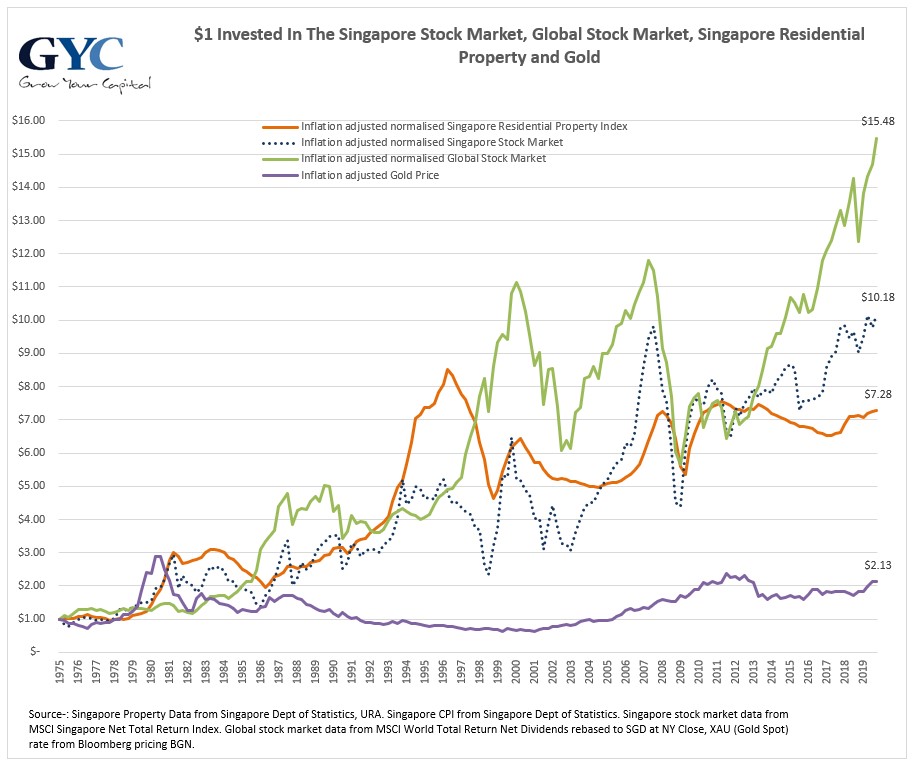
2. Risk Reduction
Having a good mix of different asset classes and global diversification (which means thousands of securities) will help you reduce the Value at Risk (VaR) and volatility of your portfolio. It’s natural to be concerned about geopolitical risk, but proper diversification can actually reduce overall risk.
Research from Vanguard shows that by adding an allocation to international equities, the maximum possible reduction in volatility falls within the 20%-50% range.
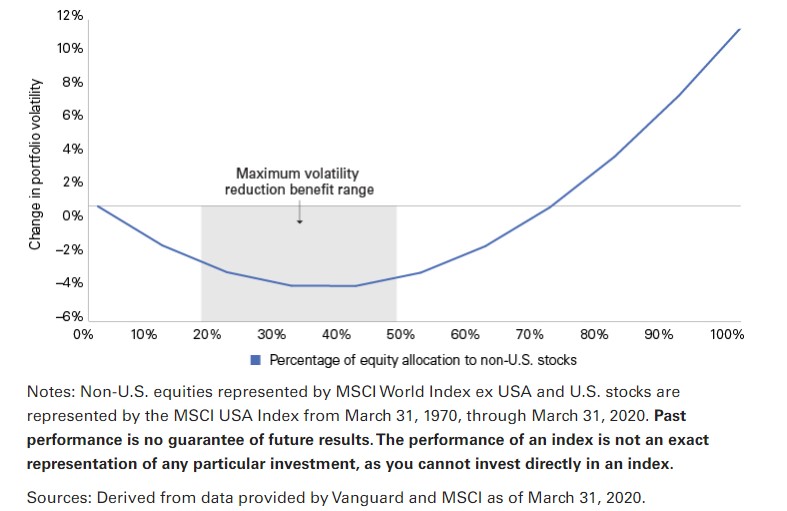
Running estimated VaR simulations on various equity allocations (represented by ETFs) also shows that a diversified global allocation has a much lower risk than single country or thematic allocations.

3. Exposure to some of the world’s top companies
This point is quite self-explanatory. Not all great stocks are found in Singapore. As explained earlier, global stocks make up around 99% of the value of stocks worldwide. By limiting your focus to local companies and perhaps a few select well-known international stocks like Amazon or Apple, you miss out on leading companies in the emerging and developed markets.
The chart below gives a snapshot of some of the large international companies found on global stock exchanges:
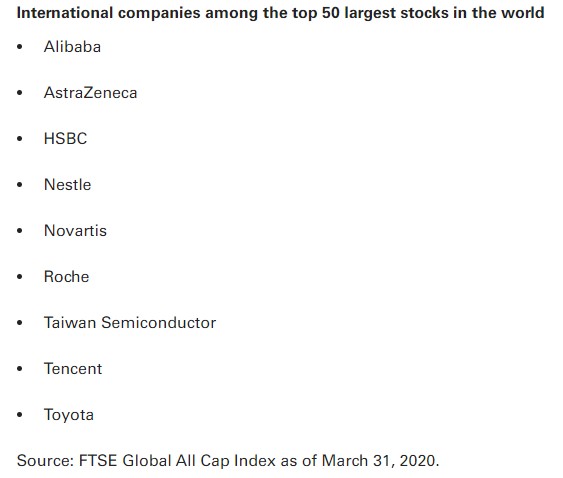
Markets and economies around the world change rapidly in response to news and events. COVID-19 has been a good illustration of this. Will there be more or less globalisation? How will this affect the Singapore economy and other countries?
No one can predict the future. However, by avoiding global stocks or limiting yourself to just a few, you will only ensure that you miss out on a wealth of opportunities.
#
If you have found this article useful and would like to schedule a complimentary session with one of our advisers, you can click the button below or email us at customercare@gyc.com.sg.
IMPORTANT NOTES: All rights reserved. The above article or post is strictly for information purposes and should not be construed as an offer or solicitation to deal in any product offered by GYC Financial Advisory. The above information or any portion thereof should not be reproduced, published, or used in any manner without the prior written consent of GYC. You may forward or share the link to the article or post to other persons using the share buttons above. Any projections, simulations or other forward-looking statements regarding future events or performance of the financial markets are not necessarily indicative of, and may differ from, actual events or results. Neither is past performance necessarily indicative of future performance. All forms of trading and investments carry risks, including losing your investment capital. You may wish to seek advice from a financial adviser before making a commitment to invest in any investment product. In the event you choose not to seek advice from a financial adviser, you should consider whether the investment product is suitable for you. Accordingly, neither GYC nor any of our directors, employees or Representatives can accept any liability whatsoever for any loss, whether direct or indirect, or consequential loss, that may arise from the use of information or opinions provided.









